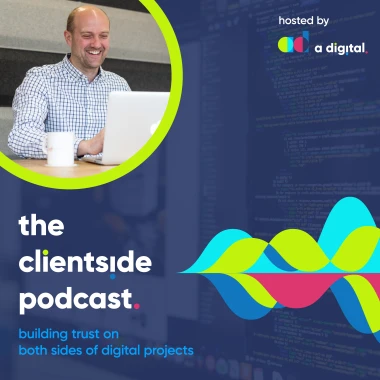
Discussing the Business Impact of Social Distancing and Coronavirus
The Clientside Podcast
The world has changed too much in one week, but in life, and business, we need to adapt to what looks to be the new normal for the foreseeable future.
In this episode of the Clientside Podcast, digital agency founder Andrew Armitage chats with A Digital's digital marketing lead Dean Duffield on the immediate impact of remote working, eCommerce, online advertising and SEO.
We also talk about our new Facebook Group that is open to anyone to join and ask questions about your marketing or digital campaigns and mention some of the tools that we're using as we adapt to working remotely.
The includes an open invitation to contact us for free advice around your digital marketing given the current circumstances. There's no strings; we'll set up a video call using Zoom and happily look at where you might be able to save money, or equally as important, make money by adapting your products and services, perhaps with online delivery in these uncertain times.
If you've comments or questions about the episode, or would like to join the show as a guest, then please contact us as hello@adigital.co.uk.
Listen on your smart device or read the transcript below
You need to look at you look at your business in a way that you've never looked at it before, from all sorts of different angles and think about, right, how how can we make this work?
Andrew Armitage Tweet